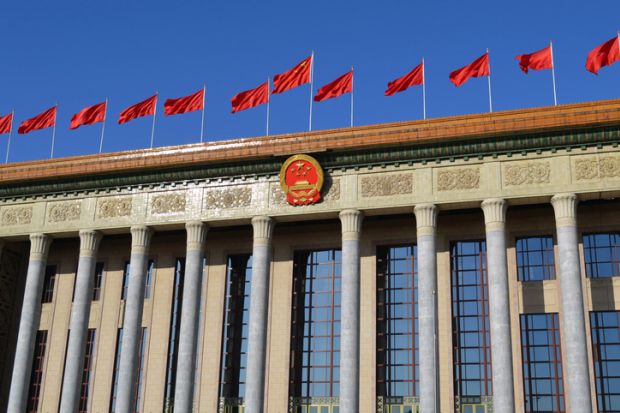Chinese universities should be given more autonomy in postgraduate recruitment, according to education experts.
During China’s “two sessions” – the annual meetings of the National People’s Congress and the Chinese People’s Political Consultative Conference (CPPCC) – several proposals called for a review of the way institutions recruited postgraduate students.
Shen Kaiju, a professor at Zhengzhou University and a member of the CPPCC national committee, suggested to education authorities that universities should be free to decide the number of PhD students they enrol each year.
Institutions should focus on quality of education, not annual quotas, his proposal stated.
“Under the current system of degree authorisation, universities have the right to qualify a PhD supervisor, but the quota is controlled by the Ministry of Education, which involves national funding and quality management,” said Peng Pai, an associate professor in the School of Education at Huazhong University of Science and Technology. “This is the root of the current debates.”
He agreed in principle that institutions should have autonomy on basic academic affairs such as deciding on how many PhD students to enrol. “However, there are many factors [involved in achieving such a change], including the operating system and policy intention. So far, I have not seen strong policy intentions to enhance institutional autonomy. This is the reason why this proposal would meet practical obstacles.”
Another proposal, presented by Xu Jingkun, deputy vice-chancellor of Jiangxi Science and Technology Normal University, suggested reforms to the recruitment of master’s students.
Currently, those who wish to enrol on a master’s course at a domestic institution must pass a national test that covers subjects including politics and English and also asks them to demonstrate their knowledge of the subject they hope to study. The exam aims to ensure fair access to postgraduate education, but it has been criticised as lacking comprehensive assessment. Each applicant can choose one institution to apply to.
Xun Yuan, a researcher in the Institute of Higher Education at East China Normal University, told Times Higher Education: “Many institutions have reformed the way they recruit PhD students, but the number of students looking to apply for master’s programmes is at a different scale.”
While he described the current set-up as being “fair and effective”, he recognised the value of allowing some leading institutions to launch pilot schemes to attract potential students with strong academic aptitude.
The two sessions heard other proposals related to higher education that also focused on improving access and on allocating resources fairly: there were suggestions about increasing opportunity for students from low-income families, as well as calls to direct more education resources to western China to bridge regional inequalities.
Register to continue
Why register?
- Registration is free and only takes a moment
- Once registered, you can read 3 articles a month
- Sign up for our newsletter
Subscribe
Or subscribe for unlimited access to:
- Unlimited access to news, views, insights & reviews
- Digital editions
- Digital access to THE’s university and college rankings analysis
Already registered or a current subscriber? Login








